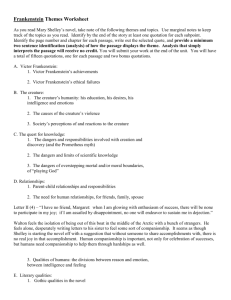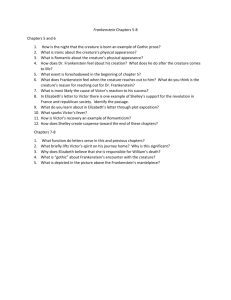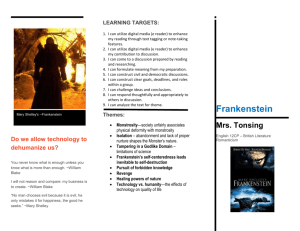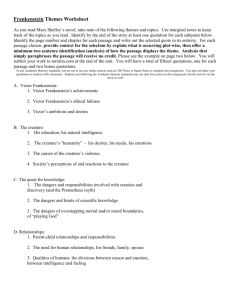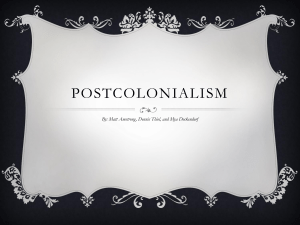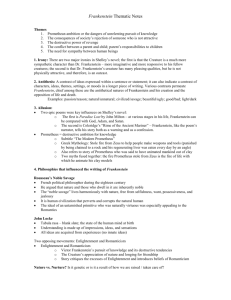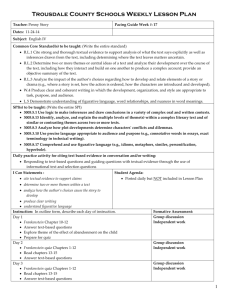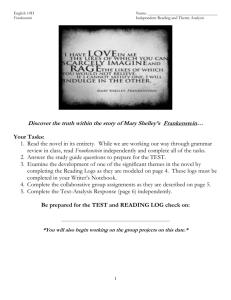Frankenstein - Archmere Academy
advertisement
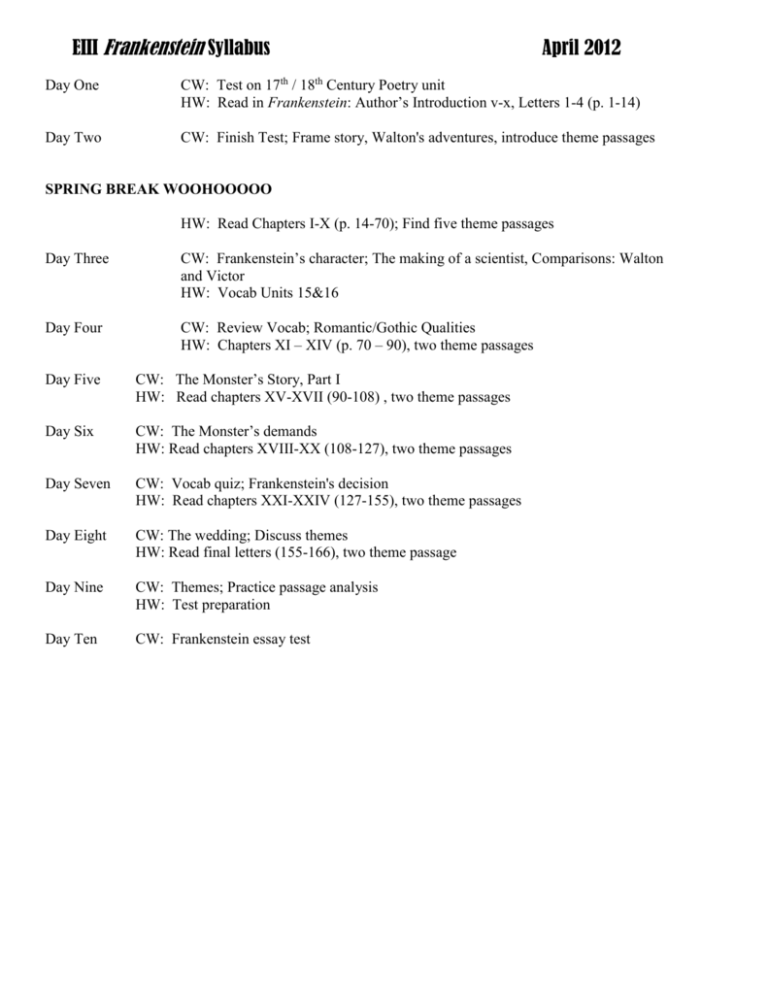
EIII Frankenstein Syllabus April 2012 Day One CW: Test on 17th / 18th Century Poetry unit HW: Read in Frankenstein: Author’s Introduction v-x, Letters 1-4 (p. 1-14) Day Two CW: Finish Test; Frame story, Walton's adventures, introduce theme passages SPRING BREAK WOOHOOOOO HW: Read Chapters I-X (p. 14-70); Find five theme passages Day Three CW: Frankenstein’s character; The making of a scientist, Comparisons: Walton and Victor HW: Vocab Units 15&16 Day Four CW: Review Vocab; Romantic/Gothic Qualities HW: Chapters XI – XIV (p. 70 – 90), two theme passages Day Five CW: The Monster’s Story, Part I HW: Read chapters XV-XVII (90-108) , two theme passages Day Six CW: The Monster’s demands HW: Read chapters XVIII-XX (108-127), two theme passages Day Seven CW: Vocab quiz; Frankenstein's decision HW: Read chapters XXI-XXIV (127-155), two theme passages Day Eight CW: The wedding; Discuss themes HW: Read final letters (155-166), two theme passage Day Nine CW: Themes; Practice passage analysis HW: Test preparation Day Ten CW: Frankenstein essay test Frankenstein Themes Worksheet As you read Mary Shelley’s novel, take note of the following themes and topics. Use marginal notes to keep track of the topics as you read. Identify by the end of the story at least one quotation for each subpoint. To receive full credit you must: Identify the page number and chapter for each passage, write out completely the selected quote. Do not use “This quote shows….”, “This passage reflects…” or any other type of language. Must be in the order presented below. Provide a minimum two sentence identification (analysis) of how the passage displays the theme. This should not be a simple paraphrasing or synopsis of the quote. You will submit your work at the end of the unit. You will have a total of fifteen quotations, one for each passage and two bonus quotations. A. Victor Frankenstein: 1. Victor Frankenstein’s achievements; successes 2. Victor Frankenstein’s moral / ethical failures B. The creature: 1. The creature’s humanity: his education, his desires, his intelligence and emotions – How does the creature learn? 2. The causes of the creature’s violence 3. Society’s perceptions of and reactions to the creature C. The quest for knowledge: 1. The dangers and responsibilities involved with creation and discovery (and the Prometheus myth) 2. The dangers and limits of scientific knowledge 3. The dangers of overstepping mortal and/or moral boundaries, of “playing God” D. Relationships: 1. Parent-child relationships and responsibilities 2. The need for human relationships, for friends, family, spouse 3. Qualities of humans: the divisions between reason and emotion, between intelligence and feeling – What makes a living creature human? E. Literary qualities: 1. Gothic qualities in the novel 2. Romantic qualities in the novel
